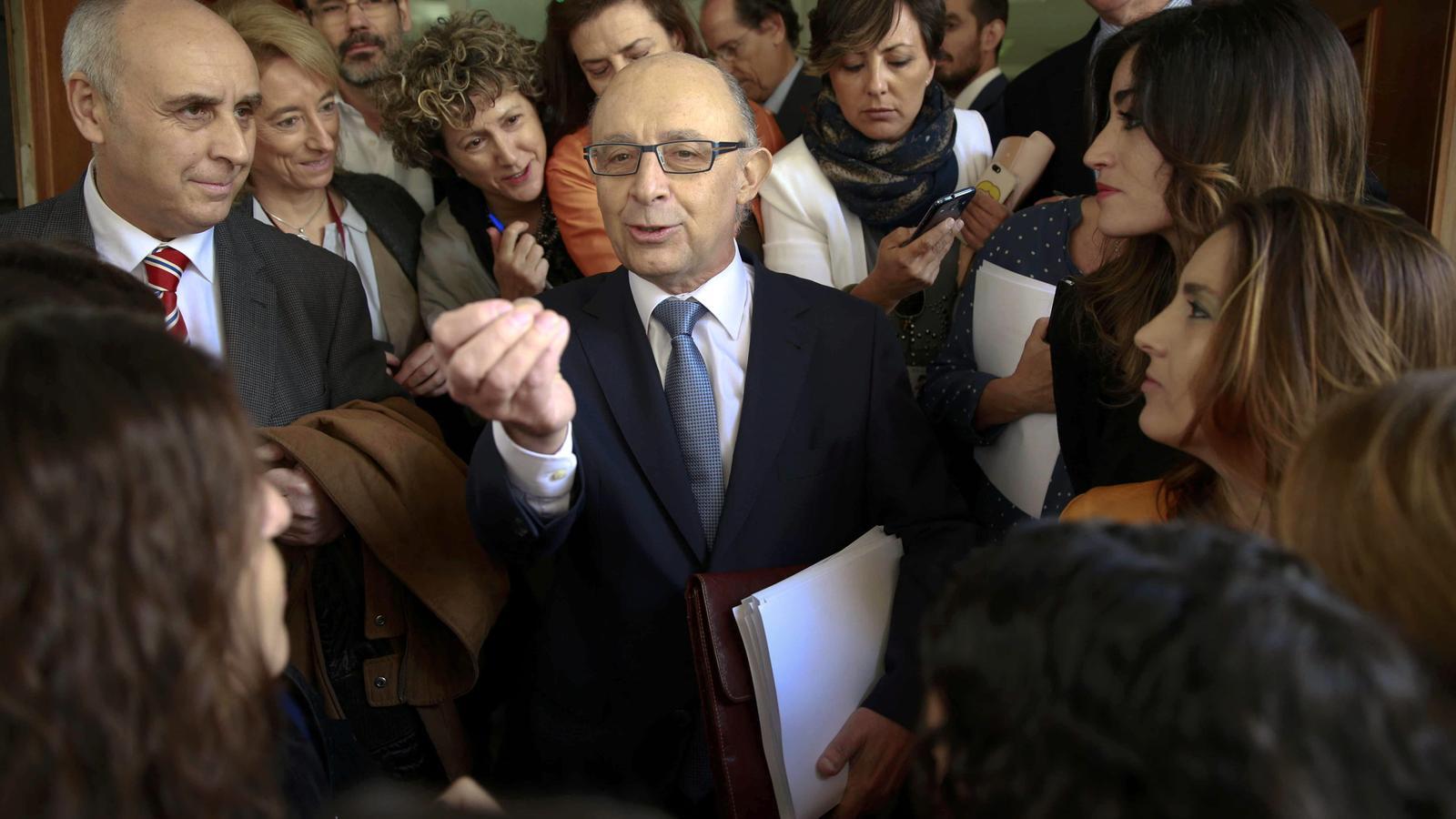The judge does not see any crime in Montoro's knowledge of confidential tax information about political opponents.
The firm founded by the former finance minister threatens journalists with legal action.

BarcelonaThe case that affects the alleged corruption of former Finance Minister Cristóbal Montoro has taken another turn. The Tarragona judge investigating the plot has made it clear in several rulings, which were released this Thursday, that he sees no crime in Montoro, now charged with multiple offenses, receiving emails from his team containing tax information of politicians from different parties, including his opponents. Thus, he denies the appearance of former PP minister Rodrigo Rato and former Podemos leader Juan Carlos Monedero as injured parties, because he sees no illegality in the theft of their data, as they were "fully authorized" and "legitimate" to receive it, according to the judge. On the other hand, he has accepted the appearance of the PSOE (Spanish Socialist Workers' Party), the only one he has validated, while he has rejected that of a journalist.
He does not see the crime of disclosure of secrets or breach of trust in the custody of documents in Montoro's receipt of emails containing tax information from his team. According to the court's report, it was the minister's chief of staff who was responsible for transmitting it, and it notes that "there was no disclosure to third parties" because it was not published. Furthermore, it maintains that the Prosecutor's Office, upon reviewing the case documentation, already concluded that the content and transmission of the emails were not a crime. The judge, who has conducted the case under secrecy for seven years, also makes it clear that although "some of the emails contain very specific data," "the Minister of Finance is the highest authority at the Tax Agency and, therefore, may have access to this data." He also adds that for the data to be considered a crime, it would have to be confidential, and whoever accessed it would have to be unauthorized, due to its "undoubtedly confidential" nature. However, "the people who accessed it are legally authorized," both the minister and the chief of staff.
Montoro allegedly obtained tax information on former Madrid president Esperanza Aguirre, tennis player Rafa Nadal, Baroness Thyssen, the PP's Gürtel case, and former Catalan president Jordi Pujol.
The office, against journalists
The case has put Montoro in the spotlight, as well as the firm Equipo Económico, a consultancy firm founded by him—which had used his surname—and which was allegedly a key player in the alleged shady dealings of the now-defendant. But this judicial ruling, which has resulted in some thirty charges, has not gone down well with the firm, which on Thursday issued a harsh statement full of threats to journalists. "Equipo Económico reserves the right to take the necessary legal action, including criminal proceedings, against anyone who makes unfounded accusations or spreads false information, in defense of the good name and professional prestige of both the firm and the group of professionals who comprise it," it emphasized.
However, the lengthy statement not only warns journalists in defense of their "honorability and professional solvency," but also denies several accusations and calls into question the conduct of the justice system. Thus, on Wednesday, he filed an appeal with the Tarragona Provincial Court, alleging "serious irregularities noted in the case from its inception" and "strongly denies having paid any gift, commission, or illicit remuneration to any public official or authority." He also seeks to clarify that he "has not committed any irregularities in the provision of his professional services." Regarding the legal changes being analyzed in the case, which are supposedly laws tailored to the clients of the firm founded by Montoro with the approval of the Ministry of Finance, he even maintains that "these laws were approved by the Cortes Generales, following the demanding procedures provided for" in its legal system, before they were debated and approved.
He also argues that the regulatory changes "have not been modified in the many years since their approval" and that their "validity and constitutionality" have not been questioned "at any time by any political party, government, or other institution." The statement goes so far as to claim that the modifications were not made "by private decision in the interest of third parties." For all these reasons, he attacks the judicial investigation with harsh accusations: he denounces the "lack of defense" in the "anomalous" procedure, which lasted more than seven years and that after these years, "the case was leaked to the media and immediately used politically, causing irreparable reputational damage." In this regard, he regrets that he has not had the opportunity to access the proceedings of the last year, that there has been "no opportunity for clarification, explanation, or contradiction of the published information," and that this has exposed him to "biased conclusions, based exclusively on conjecture and absolutely erroneous," in his opinion.
